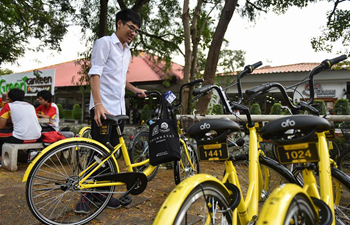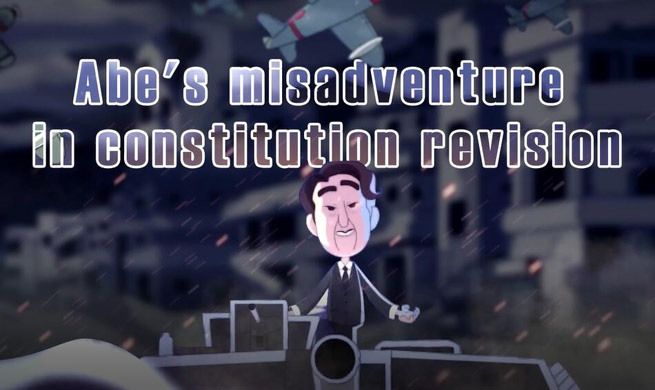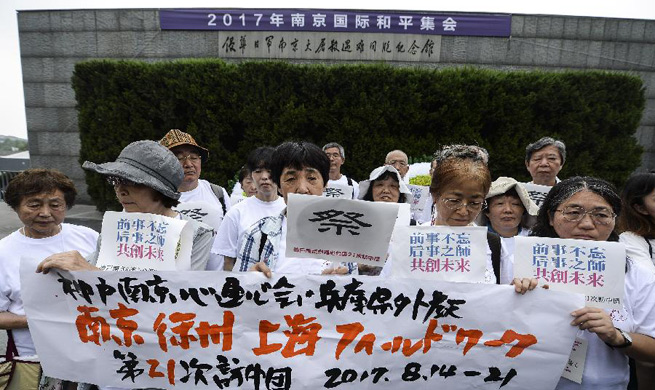LONDON, Aug. 15 (Xinhua) -- Tuesday's announcement by the British government that it had a formal plan for trade with the European Union (EU) for a period after it formally leaves the bloc was met with cautious approval by business leaders while some other people criticized it.
London announced Tuesday that it wanted a temporary form of customs union to continue trading with the EU after the United Kingdom (UK) formally left the union, which is scheduled for the end of March 2019, in what it described as a transition deal.
Businesses, the City (British financial sector), and services had all expressed concerns that the departure of the UK from the EU would lead to a "cliff-edge scenario" where trade was governed by UK rules and then suddenly by less favorable World Trade Organization (WTO) rules, increasing bureaucracy, costs and tariffs when the exit took place.
This scenario would have been unwelcome, with businesses preferring the certainty of a negotiated settlement, which could provide better terms than WTO rules.
The British government's position paper is intended to provide a focus for discussion with the EU to achieve a negotiated deal, and crucially to avoid an imminent deadline.
Anastassia Beliakova, head of trade policy at business representative body British Chambers of Commerce (BCC), told Xinhua on Tuesday afternoon: "It remains to be seen how the plan would be worked out in the details, but it is certainly good news that this is clearly a priority for the UK government."
Surveys over the past year of BCC member companies, showed that two thirds of firms wanted some kind of transition deal after Britain formally left the EU, said Beliakova.
Clarity on the UK's future customs arrangement with the EU is significantly higher on their priority list than the swift negotiation of new free trade agreements, and businesses wanted to see the government's resources focused on the conclusion of a successful customs deal with the EU.
"Leaving the customs union means having to adapt to new bureaucratic processes that businesses are not currently used to, so today's paper which outlines intentions for a customs arrangement that would be as close as possible to what we currently have is welcome," said Beliakova.
British businesses would wish the process of leaving the EU to be as smooth and cheap as possible, said Beliakova.
A situation where Britain left the EU in 2019 and then sometime after that negotiated a new trade deal would not be the best solution, said Beliakova, because it would mean that businesses have to adapt to two new sets of circumstances with two new and different sets of costs.
"Ideally businesses would not have to face two or more sets of adjustment costs; where that would happen is if there is one arrangement for the interim period and then something entirely different at the end of it -- that should be avoided," said Beliakova.
Current customs union arrangements means the free flow of goods across the whole EU is possible with no border or tariff checks. This is speedy and drives down costs.
"Our members would want to have as few physical checks on goods as possible, and if there is to be a customs border as little waiting time there as possible too. Any extra costs would need to be minimized," Beliakova said.
BCC represents businesses across Britain employing 5,000,000 workers, approximately one sixth of the total British workforce.

















